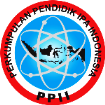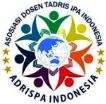Development of Socio-Scientific Issues-Based Worksheets to Increase Learning Interest and Critical Thinking Skills of Students on Buffer Solution Material
Abstract
This study is intended to develop a worksheet based on socio-scientific issues for buffer solution material that is valid and reliable in order to determine the increase in students' learning interest and critical thinking skills. The Research and Development (R&D) method with the ADDIE model was employed, encompassing five phases: analysis, design, development, implementation, and evaluation. Data collection techniques included interviews, student questionnaires, validation sheets, and user response questionnaires. Two methods were used in small-scale trials: one-on-one tests and user response assessments. The one-on-one test involved three students with high, medium, and low abilities. The user response assessment involved three teachers and 30 students from SMAN 4 Pekanbaru, SMAN 8 Pekanbaru, and SMAN 15 Pekanbaru. The difference in the effect of using the worksheet on improving critical thinking skills and learning interest was analyzed using the t-test. To determine whether there was an increase in critical thinking skills, as indicated by improved student grades, the N-Gain formula was applied. The results showed that the developed worksheet obtained average percentages of 92% from material experts and 98% from media experts, indicating valid criteria. The one-on-one test provided students' comments on necessary improvements to the worksheet components. User responses from teachers and students resulted in 93.1% and 93.7% respectively, indicating that good criteria were achieved. The paired t-test on learning interest data showed a significance value of 0.000 (sig < 0.05), indicating a significant difference in students' learning interest before and after using the worksheet. Similarly, the critical thinking skills data showed a significance value of 0.000 (sig < 0.05), indicating a significant difference in students' critical thinking skills before and after using the worksheet. Based on the posttest results of the experimental and control classes, it was found that the student worksheets improved students' critical thinking skills to a medium level, with an N-Gain value of 53.93. In contrast, the control class showed a low improvement, with an N-Gain value of 30.00.
Keywords: worksheet, Socio-Scientific Issues, interest in learning, critical thinking skills, buffer solutionFull Text:
PDFReferences
Adawiyah, S. R., Hakim, A., & Hadisaputra, S. (2020). Pengembangan Modul Praktikum Kimia Bahan Alam Berbasis Generik Sains: Isolasi Fenobarbiton dari Kulit Batang Pohon Api-api (Avicennia marina). Chemistry Education Practice, 3(2), 84. https://doi.org/10.29303/cep.v3i2.1994
Akram, T. M., Ijaz, A., & Ikram, H. (2017). Exploring the Factors Responsible for Declining Students’ Interest in Chemistry. International Journal of Information and Education Technology, 7(2), 88–94. https://doi.org/10.18178/ijiet.2017.7.2.847
Apriani, R., Harun*, A. I., Erlina, E., Sahputra, R., & Ulfah, M. (2021). Pengembangan Modul Berbasis Multipel Representasi dengan Bantuan Teknologi Augmented Reality untuk Membantu Siswa Memahami Konsep Ikatan Kimia. Jurnal IPA & Pembelajaran IPA, 5(4), 305–330. https://doi.org/10.24815/jipi.v5i4.23260
Arikunto, S. (2010). Prosedur penelitian suatu pendekatan praktik. Jakarta: Rineka Cipta.
Ashari, S. E., Rachmadiarti, F., & Herdyastuti, N. (2023). Analysis of the Science Literacy Profile of Students at State Junior High School. IJORER: International Journal of Recent Educational Research, 4(6), 889–898.
Augustha, A., Susilawati, S., & Haryati, S. (2021). Pengembangan E-LKPD Berbasis Discovery Learning Menggunakan Aplikasi Adobe Acrobat 11 Pro Extended pada Materi Kesetimbangan Ion dan pH Larutan Garam untuk Kelas XI SMA/MA Sederajat. Journal of Research and Education Chemistry, 3(1), 28. https://doi.org/10.25299/jrec.2021.vol3(1).6485
Ausubel, D. P., & Ausubel, D. P. (2000). Assimilation theory in meaningful learning and retention processes. The Acquisition and Retention of Knowledge: A Cognitive View.
Chen, Y. T., Chen, T. J., & Tsai, L. Y. (2011). Development and evaluation of multimedia reciprocal representation instructional materials. International Journal of Physical Sciences, 6(6), 1431–1439. https://doi.org/10.5897/IJPS11.066
Dahlan. (2010). Besar Sampel dan Cara Pengambilan Sampel. Jakarta: Salemba Medika.
Damayanti, I., Yunarti, T., & Widyastuti. (2015). Deskripsi Disposisi Berpikir Kritis Matematis Siswa dalam Pembelajaran Socrates Kontekstual. Jurnal Pendidikan Matematika, Vol.3 No.4.
Darwis, N. A., Ali, S., & Helmi, H. S. N. F. Pp. U. (2020). Kemampuan Berpikir Kritis Ditinjau dari Minat Belajar Fisika, Kepercayaan Diri, dan Kecerdasan Emosional Peserta Didik Kelas X MIA SMA Negeri 1 Gowa. Prosiding Seminar Nasional Fisika PPs UNM, 2, 120–123. Retrieved from https://ojs.unm.ac.id/semnasfisika/article/view/14369/8852
Fithriyah, I., Sa’dijah, C., & Sisworo. (2016). Analisis kemampuan berpikir kritis siswa kelas IX-D SMPN 17 Malang. Konferensi Nasional Penelitian Matematika Dan Pembelajarannya, (Knpmp I), 580–590.
Hancock, T. S., Friedrichsen, P. J., Kinslow, A. T., & Sadler, T. D. (2019). Selecting Socio-scientific Issues for Teaching A Grounded Theory Study of How Science Teachers Collaboratively Design SSI-Based Curricula. Science & Education, 28.
Handayani, A., & Hastuti, P. W. (2018). Pengaruh Pendekatan Socio-Scientific Issues Terhadap Environmental Literacy Siswa Smp. Pend. Ilmu Pengetahuan Alam …, 419–422. Retrieved from http://journal.student.uny.ac.id/ojs/ojs/index.php/ipa/article/view/12940
Haryadi, S., Djatmika, E. T., & Setyosari, P. (2017). Suplemen Buku Ajar Tematik Materi Energi Alternatif & Sumber Daya Alam Berbasis. Jurnal Pendidikan: Teori, Penelitian, Dan Pengembangan, 2, 1330–1337.
Haryanti, Y. D. (2017). Model Problem Based Learning Membangun Kemampuan Berpikir Kritis Siswa Sekolah Dasar. Jurnal Cakrawala Pendas, 3(2). https://doi.org/10.31949/jcp.v3i2.596
Haryati, E., Andayani, Y., & Al Idrus, S. W. (2019). Analisis Minat Belajar Dan Kemampuan Awal Keterampilan Berpikir Kritis Siswa Pada Materi Minyak Bumi. Jurnal Pijar Mipa, 14(3), 128–134. https://doi.org/10.29303/jpm.v14i3.1297
Hidayah, M., Syafi’i, W. S. W., & Fauziah, Y. (2018). Implementasi lembar kerja peserta didik (lkpd) berorientasi model pembelajaran guided inquiry untuk meningkatkan kemampuan berpikir kritis dan hasil belajar peserta didik kelas XI MIA 4 SMAN 9 Pekanbaru. Jurnal Online Mahasiswa (JOM) Bidang Keguruan Dan Ilmu Pendidikan, 5(2), 293–306.
Kember, D., & Leung, D. Y. P. (2005). The influence of active learning experiences on the development of graduate capabilities. Studies in Higher Education, 30(2), 155–170. https://doi.org/10.1080/03075070500043127
Korucu-Kış, S. (2021). Preparing student teachers for real classrooms through virtual vicarious experiences of critical incidents during remote practicum: A meaningful-experiential learning perspective. Education and Information Technologies, 26(6), 6949–6971. https://doi.org/10.1007/s10639-021-10555-7
Lin, X.-F., Hwang, G.-J., Wang, J., Zhou, Y., Li, W., Liu, J., & Liang, Z.-M. (2023). Effects of a contextualised reflective mechanism-based augmented reality learning model on students’ scientific inquiry learning performances, behavioural patterns, and higher order thinking. Interactive Learning Environments, 31(10), 6931–6951.
Maria Merianti L, Hairida, & Rasmawan, R. (2016). Keterampilan Berpikir Kritis Siswa Menggunakan Model Pembelajaran Inkuiri Terbimbing Pada Materi Larutan Penyangga. Jurnal Pendidikan Dan Pembelajaran Khatulistiwa (JPPK), 139–141.
Muthoharoh, M., Kirna, I. M., & Indrawati, G. ayu. (2017). Penerapan Lembar Kerja Peserta Didik (LKPD) Berbasis Multimedia untuk Meningkatkan Motivasi dan Hasil Belajar Kimia. Jurnal Pendidikan Kimia Indonesia, 1(1), 13. https://doi.org/10.23887/jpk.v1i1.12805
Putriana, A. R., Suryawati, E., & Suzanti, F. (2020). Socio Scientific Issue (Ssi) Based LKPD Development In Learning Natural Science SMP Class VII. 4, 80–89.
Rahayu, R., Sutikno, & Indriyanti, D. R. (2023). Ethnosains Based Project Based Learning Model with Flipped Classroom on Creative Thinking Skills. Jurnal Penelitian Pendidikan IPA, 9(8), 348–355. https://doi.org/10.29303/jppipa.v9i8.3051
Razak. (2017). Hubungan Kemampuan awal terhadap Kemampuan Berpikir Kritis Matematika pada Siswa Kelas III SMP Pesantren IMMIM Putri Minasatene. Mosharafa: Jurnal Pendidikan Matematika, 6(1).
Riduwan. (2016). Skala Pengukuran Variabel-variabel Penelitian. Bandung: Alfabeta.
Rusydi, A. (2018). Manajemen pemasaran. Bandung: Alfabeta.
Sianturi, S. R., & Aprianingsih, Y. (2021). Hubungan Karakteristik Individu Dengan Tingkat Pengetahuan Masyarakat Tentang Penyakit Hiv/Aids Di Bekasi. Jurnal Keperawatan Dan Kesehatan Masyarakat Cendekia Utama, 10(3), 210. https://doi.org/10.31596/jcu.v10i3.422
Simbolon, M., Mulyono, E., & Surya, E. (2017). The Efforts to Improving the Mathematical Critical Thinking Student’s Ability through Problem Solving Learning Strategy by Using Macromedia Flash. American Journal of Educational Research, 5(7), 725–731. https://doi.org/10.12691/education-5-7-5
Sugiyono. (2016). Metode Penelitian Pendidikan (Pendekaran Kuantitatif, Kualitatif, dan R&D). Jakarta: CV Alfabeta.
Sugiyono. (2017). Metode Penelitian Kuantitatif, Kualitatif, Dan R&D. Bandung: Alfa Beta.
Susilaningsih, E., Drastisianti, A., Lastri, Kusumo, E., & Alighiri, D. (2019). The Analysis of Concept Mastery Using Redox Teaching Materials with Multiple Representation and Contextual Teaching Learning Approach. Jurnal Pendidikan IPA Indonesia, 8(4), 475–481. https://doi.org/10.15294/jpii.v8i4.18072
Winataputra, S. U., Delfi, R., Pannen, P., & Dina, M. (2010). Teori Belajar dan Pembelajaran. Jakarta: Universitas Terbuka.
Yustina, S., Irhasyuarna, Y., & Kusasi, M. (2015). Penerapan metode pembelajaran problem solving terhadap kemampuan berpikir kritis siswa pada materi koloid kelas xi ipa sma negeri 4 banjarmasin. Quantum: Jurnal Inovasi Pendidikan Sains, 6(2).
Zakaria, Z. (2021). Kecakapan Abad 21 Dalam Pembelajaran Pendidikan Dasar. Jurnal Pemikiran Dan Pendidikan Dasar Islam, 4(2), 81–90.
Zeidler, D. L., & Nichols, B. H. (2009). Socio-scientific Issues: Theory and Practice. Journal of Elementary Science Education, 21(2), 49-
DOI: http://dx.doi.org/10.24014/jnsi.v7i1.24402
Refbacks
- There are currently no refbacks.

Journal of Natural Science and Integration
E-ISSN: 2620-5092 P-ISSN: 2620-4967
Published By:
Department of Science Education, Faculty of Education and Teacher Training,
State Islamic University of Sultan Syarif Kasim Riau, Indonesia
Mailing Address:
Jl. H.R Soebrantas Km. 15 No. 155
Kelurahan Simpang Baru
Kecamatan Tuah Madani, Pekanbaru, Riau, Indonesia
Email: jnsi.tadrisipa@uin-suska.ac.id
Indexed By:
Journal of Natural Science and Integration is licensed under a Creative Commons Attribution 4.0 International License.


_-_Copyy2.png)






.jpg)
.png)
.jpg)
.jpg)




